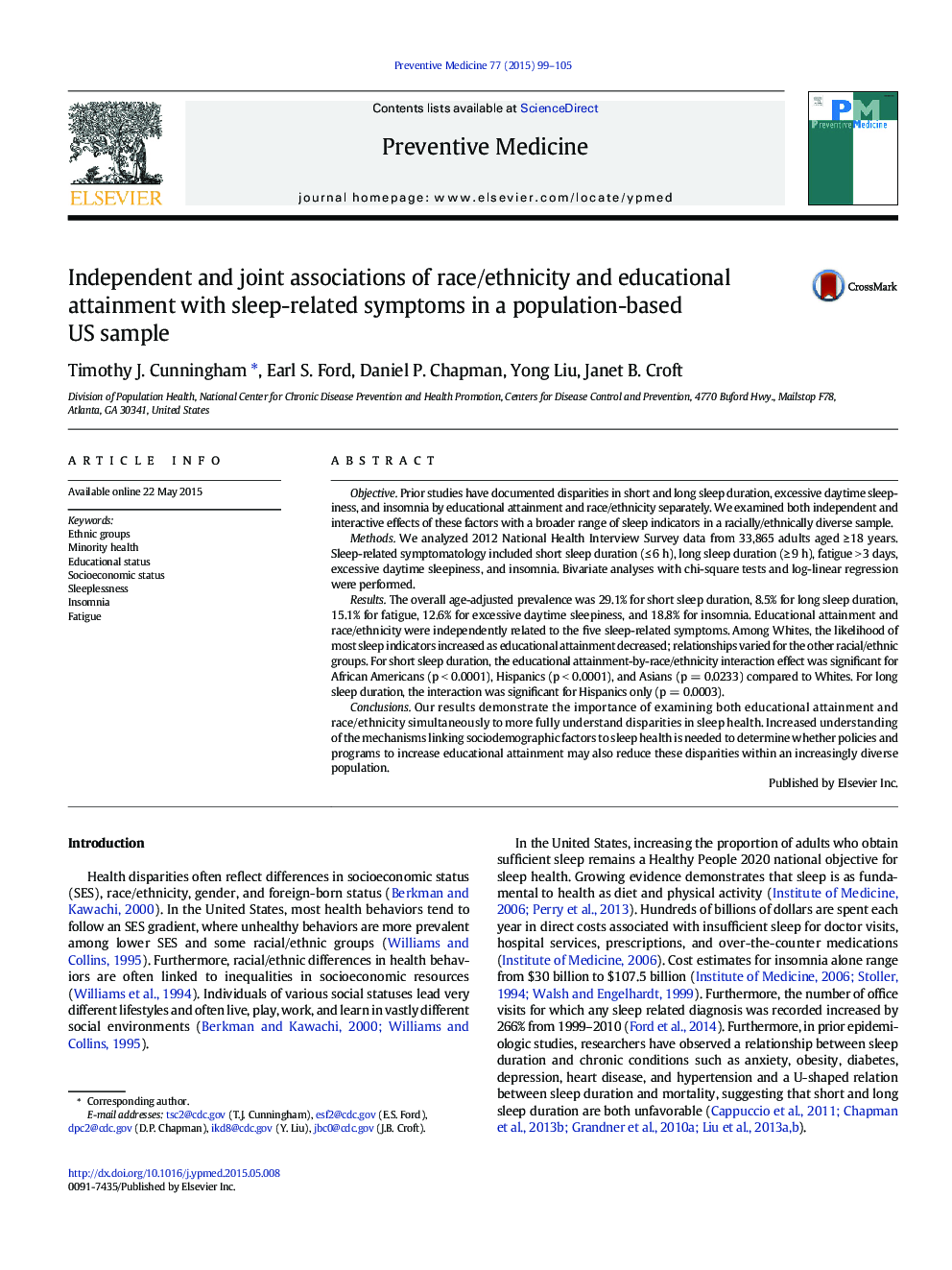| کد مقاله | کد نشریه | سال انتشار | مقاله انگلیسی | نسخه تمام متن |
|---|---|---|---|---|
| 6046728 | 1581637 | 2015 | 7 صفحه PDF | دانلود رایگان |
- Cross-sectional analysis of 2012 US National Health Interview Survey data
- Lower education was associated with adverse sleep-related symptomatology among Whites.
- Education and sleep health associations were less consistent among the other racial/ethnic groups.
- Research is needed to show whether increases in education reduce racial/ethnic sleep disparities.
ObjectivePrior studies have documented disparities in short and long sleep duration, excessive daytime sleepiness, and insomnia by educational attainment and race/ethnicity separately. We examined both independent and interactive effects of these factors with a broader range of sleep indicators in a racially/ethnically diverse sample.MethodsWe analyzed 2012 National Health Interview Survey data from 33,865 adults aged â¥Â 18 years. Sleep-related symptomatology included short sleep duration (â¤Â 6 h), long sleep duration (â¥Â 9 h), fatigue > 3 days, excessive daytime sleepiness, and insomnia. Bivariate analyses with chi-square tests and log-linear regression were performed.ResultsThe overall age-adjusted prevalence was 29.1% for short sleep duration, 8.5% for long sleep duration, 15.1% for fatigue, 12.6% for excessive daytime sleepiness, and 18.8% for insomnia. Educational attainment and race/ethnicity were independently related to the five sleep-related symptoms. Among Whites, the likelihood of most sleep indicators increased as educational attainment decreased; relationships varied for the other racial/ethnic groups. For short sleep duration, the educational attainment-by-race/ethnicity interaction effect was significant for African Americans (p < 0.0001), Hispanics (p < 0.0001), and Asians (p = 0.0233) compared to Whites. For long sleep duration, the interaction was significant for Hispanics only (p = 0.0003).ConclusionsOur results demonstrate the importance of examining both educational attainment and race/ethnicity simultaneously to more fully understand disparities in sleep health. Increased understanding of the mechanisms linking sociodemographic factors to sleep health is needed to determine whether policies and programs to increase educational attainment may also reduce these disparities within an increasingly diverse population.
Journal: Preventive Medicine - Volume 77, August 2015, Pages 99-105
